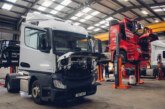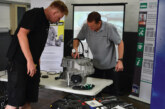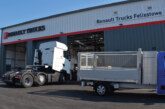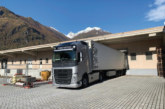Derek Martin, from Parker Racor, explains why lower quality replacement fuel filters can be a false economy when thinking about long-haul protection for commercial vehicles.
Using OEM diesel fuel filters during a vehicle’s warranty period is the norm and for good reason. Maintaining this approach after the warranty expires also makes sense. The risks associated with products that may use lower quality parts, materials or technology can potentially have serious and costly implications for the entire vehicle fleet.
This article considers the commercial and technical reasons why buying approved fuel filters for the entire operating life of fleet vehicles represents the most cost-effective strategy.
Out-of-warranty replacements
In the warranty period, high-quality filters bought directly from OEMs like Renault, Mercedes and Scania, or their official distributors, will have been tested to the highest standards. From an operator perspective their replacement is an easy-to-facilitate process.
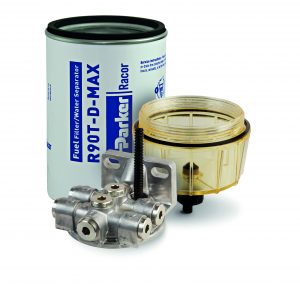
If outside the warranty period, however, there is sometimes the temptation to source cheaper alternatives. The detriments of a non-approved filter rapidly become clear when it is opened up and compared, side-by-side, to an approved one. What’s more, in time, the difference in material condition and filter efficiency will widen further. Often, lower material quality offers poor water separation efficiency, at which point filter life will already be terminally limited.
Beyond this time, the capability to remove dirt, particles and microbiological contamination is likely to be inferior, while the risk of more contamination will intensify. Soon, it will not only be the fuel filter that is showing the effects; damage to the fuel injection system and engine could potentially have a considerable knock-on impact for the whole operation.
Vehicles will need reallocation and any damaged parts, including the filter, will require rapid replacement or overhaul at additional cost.
Chances are, when the vehicle fails, the operator that sought to save money on the initial cost of a replacement filter will be aware of the cause. The operator might, however, be unaware of the real dangers to both fleet vehicles and employees.
The dangers of a short-term approach
To the everyday person, and indeed many experts, it is virtually impossible to distinguish between a non-OEM approved filter and one tested against the exacting standards set by the manufacturer. The fit will be the same and, apart from colour, the exterior will be nearly identical. Unfortunately, however, the differences will become all too apparent in time.
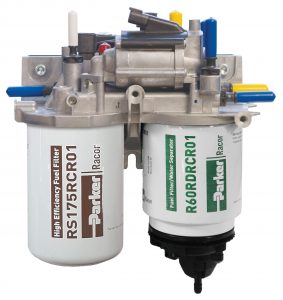
Milder risks involved with fitting an inferior filter include decreased product life, greater levels of impurities passing the filter and poor engine performance. At the other end of the scale, worst case scenarios could see permanent damage to the fuel injection system, namely the injectors, high-pressure pump and even the engine.
There is no way of telling when and to what extent a non-approved filter could present a problem, until it occurs. If an issue happens halfway through a shipment, the immediate cost implications will be felt hard. A replacement vehicle will need to be dispatched, or else the customer reimbursed at the operator’s cost. The damage to finances, resources and reputation is likely to be significant.
Sticking to the rules
The EU’s block exemption rule protects the right of an operator to buy non-OEM approved parts, provided they are of equal or better quality. This rule may s uggest that all replacement filters are comparable, but it is key to appreciate just how great a difference there is between one approved by the OEMs and one built for value.
Further to the block exemption rule are the European emission standards that seek to minimise the harm of pollution from exhausts, with special attention given to heavy-goods vehicles. Euro VI emission standards have contributed greatly to the requirement for enhanced fuel filtration efficiency.
There is no doubt that operators are already facing increased costs to meet these latest standards. New vehicles and improved infrastructure will, however, be wasted efforts if the diesel filters within them are not up to task. Of course, it makes complete business sense for operators to seek the best possible deal on new diesel filters. However, be wary that if something seems cheaper than it should, chances are it will not provide the long-haul protection required.




